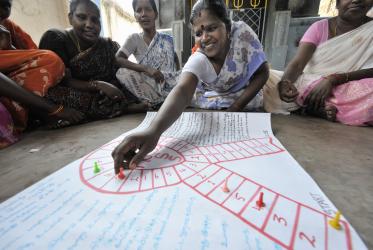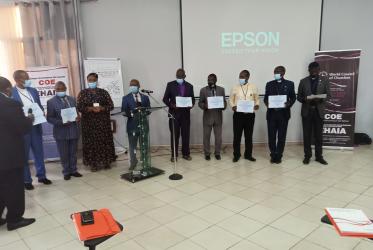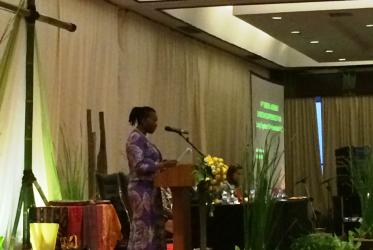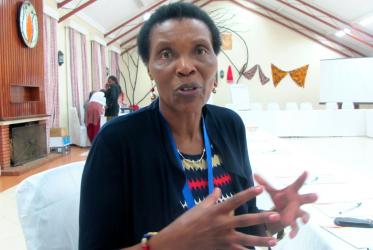Displaying 1 - 20 of 23
Workshop on HIV stigma, treatment adherence opens in Tanzania
29 September 2021
WCC mourns passing of Hendrew Lusey-Gekawaku
23 October 2020
Moravian Church in Tanzania launches Thursdays in Black
10 September 2019
#WCC70: A prayer about health and healing
20 July 2018
New videos help congregations hasten HIV response
20 October 2016
Voices from HIV workshop reflect deep impact
07 April 2016
Church in Philippines launches book on HIV and AIDS
19 February 2014











